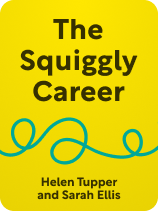

This article is an excerpt from the Shortform book guide to "The Squiggly Career" by Helen Tupper and Sarah Ellis. Shortform has the world's best summaries and analyses of books you should be reading.
Like this article? Sign up for a free trial here.
What are your talents, and how can you leverage them for career success? Are you making the most of your strengths in your current role?
In The Squiggly Career, Helen Tupper and Sarah Ellis emphasize the importance of identifying and utilizing your super strengths at work. Their insights can help you become more productive, effective, and satisfied in your professional life.
Keep reading to discover strategies for recognizing and maximizing your unique abilities.
Your Unique Talents
Tupper and Ellis explain that workers must identify and leverage their unique talents to reach peak performance. Unique talents, or super strengths as the authors call them, are not just your strengths but the things you’re best at and love doing.
So, what are your talents? The authors offer advice on identifying them and using them to advance your career. First, they explain why leveraging your unique talents is crucial—particularly in a nonlinear career.
(Shortform note: Many professional development experts agree on the importance of leveraging your super strengths at work; however, some categorize the components that define super strengths slightly differently. For example, in The Success Principles, Jack Canfield believes that super strengths also encompass the talents that generate the most income for you or your company. While Tupper and Ellis don’t necessarily speak against considering financial gains when identifying your super strengths, they don’t consider them relevant criteria.)
First, the authors say that leveraging your unique talents in your career makes you exponentially more productive and effective than those who don’t—this makes you a valuable and timeless asset in ever-changing organizations. Second, knowing your unique talents helps you identify valuable opportunities and make effective decisions with minimal employer direction—an opportunity is only worth pursuing if it makes use of your talents.
(Shortform note: To truly boost your productivity and decision-making abilities, consider regularly setting specific, short-term goals on top of identifying your unique talents. In The 12 Week Year Brian P. Moran explains that short-term goals boost productivity by requiring you to identify what you need to do and when—this reduces ambiguity and the potential for productivity-killing procrastination. Further, setting short-term goals requires you to identify specific actions necessary to reach those goals. This will help you make effective decisions because it will be clear whether an opportunity helps you accomplish your specific actions, and therefore your goal, or whether it will be a distraction.)
Second, research shows that leveraging your talents productively makes you happier; therefore, using your unique talents in your career will arguably make you happier and more satisfied with your job. This is crucial for those prioritizing passion over comfort.
(Shortform note: The authors note that utilizing your unique talents in your work makes you happier and more satisfied with your job, but they don’t specify why. In Scrum, Jeff Sutherland provides some background, explaining that happiness at work is defined by three factors: 1) the freedom to make and act on your own decisions, 2) the feeling of accomplishment and progress, and 3) the feeling that what you’re doing is important and impactful. Leveraging your unique talents likely makes you happy by allowing these three factors to be present in your work.)
Identify Your Unique Talents
According to Tupper and Ellis, the first step in leveraging your unique talents is identifying what they are. To do this, they recommend the following four-part exercise.
First, brainstorm 15 to 20 of your strengths. Then, the authors recommend writing down three weaknesses and three strengths you have that counter each weakness. It’s often easier to identify our weaknesses, and our weaknesses often parallel some of our greatest strengths. For example, a weakness may be organization but a parallel strength may be creativity—maybe you’re a scattered person, but that helps you think outside the box.
(Shortform note: The authors’ concept of weaknesses often indicating strengths is a common theme in stories such as the account of David and Goliath in the Bible. David had weaknesses that suggested he’d fail in his battle—he had no sword and armor, he was small, and he was a shepherd without battle skills. However, each of these perceived weaknesses ended up being strengths that helped him succeed—he was more agile without weapons, his size made him fast, and his experience as a shepherd taught him to fatally sling rocks at predators. If you’re struggling to identify strengths that oppose your weaknesses, try imagining yourself as a person such as David—this may help you think of yourself in a more empowering way.)
Second, the authors say to make a list of things you’re naturally gifted at. Then, ask three people with whom you have different relationships to provide a few words that describe you and an explanation behind each word—your gifts tend to stand out to others. Finally, compare the words and explanations from friends to the natural gifts and strengths you’ve listed and identify overlaps.
(Shortform note: In StrengthsFinder 2.0, Tom Rath provides some additional information about strengths that help you identify your natural gifts. Rath Says there are 34 innate abilities that fall into four categories: action-oriented abilities, cognitive abilities, people-oriented abilities, and belief-based abilities. Keeping these categories in mind may not only get your juices flowing while brainstorming, but can also provide a foundation for you to use when identifying overlaps in your results. For example, you may find that your natural talents tend to be associated with your people-oriented abilities more than the other categories.)
Third, after listing strengths that come naturally, the authors say to list those you’ve learned. To do this, consider your daily personal and professional tasks and responsibilities and the skills they require. For example, maybe you learned to cook by paying attention to details of recipes.
(Shortform note: Ryder Carroll’s The Bullet Journal Method may more effectively help you keep track of your daily tasks to measure what you excel at. The method entails keeping a “daily record” of ideas, thoughts, statistics, and so on pertaining to situations throughout your day—you can have different sections for different topics, like your performance on daily tasks. Then, you can review your records to identify where you’re excelling at the end of the day, week, or month. Using the method may also help you identify unique talents without recording your daily tasks by encouraging constant introspection.)
Finally, the authors’ last step to identify your unique talents is to select six strengths from the lists you’ve made so far that you’re exceptional at and want to explore more. Then, give each talent a 1-10 score on four factors: how successful you’ve been using the skill, how often you use it, how visible it is to others, and how happy using it makes you. Total your scores for each talent so you get a number out of 40—higher-scoring talents are the ones you should consider unique talents, especially the ones that score highest in happiness.
(Shortform note: Using a tool that matches you with official strengths based on research by experts—rather than your own insightful but amateur observations—may be a more effective route to identify your unique talents. You can take Gallup’s StrengthFinder test, which will match you with 5-10 of the strengths laid out by Rath in StrengthsFinder 2.0. This test may also give you a more complete list of your strengths, providing you with up to 10 versus the authors’ six.)
Leverage Your Unique Talents
The authors provide a few recommendations for leveraging your unique talents to benefit your career.
First, spend time on your unique talents—the majority of your time should be spent practicing and developing your talents while under a quarter of your time should be spent improving weaknesses that are hindering your talents. For example, if you’re a great written communicator but you struggle with speaking, spend most of your time on your writing but occasionally practice sharing your ideas verbally so you can strengthen your communication skills overall. Further, consider how you’re using your unique talents in your current role and how you can use them more. If your current job doesn’t use your unique talents, consider switching to one that does.
(Shortform note: In The Success Principles, Canfield offers a method for dedicating time to your unique talents that doubles as a framework for integrating talents into your work schedule. He recommends dividing your days into three categories: 1) days where you focus on your unique talents, 2) days where you prepare for your talent days, and 3) non-working leisure days. To combine Canfield and the authors’ suggestions, you can spend four days a week on unique talents and one day preparing for talent days by improving weaknesses. Then, take the weekend and occasional vacation days for leisure—Canfield recommends 130 to 150 leisure days a year to recharge your productivity.)
Second, look for new opportunities to develop your unique talents. One way to do this is to use them for personal projects, side jobs, or volunteer opportunities. You should also let others know about your talents and make them evident on social media sites like LinkedIn—when other people know your talents, you’re more likely to be offered valuable opportunities.
(Shortform note: In Designing Your Life, Bill Burnett and Dave Evans reiterate the importance of continuously looking for new opportunities by putting yourself out there. Doing so plugs you into “the hidden job market”—sharing your interests with others whether through actions, conversations, or social media makes you a candidate for opportunities you never officially applied for. To make this process most effective, Burnett and Evans recommend adopting the mindset of seeking offers rather than jobs. Not only will you attract rather than chase, but you’ll foster a curiosity-based mindset that encourages you to pursue offers out of genuine interest rather than just career alignment—an important factor for Ability 5: Foresight.)

———End of Preview———
Like what you just read? Read the rest of the world's best book summary and analysis of Helen Tupper and Sarah Ellis's "The Squiggly Career" at Shortform.
Here's what you'll find in our full The Squiggly Career summary:
- How the nature of work and career paths has changed dramatically since the early 2000s
- The five abilities workers need to succeed in today’s environment
- Why climbing the corporate ladder might not be for you






